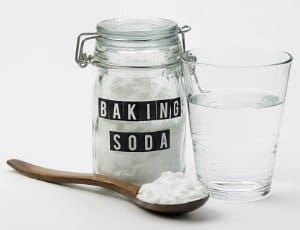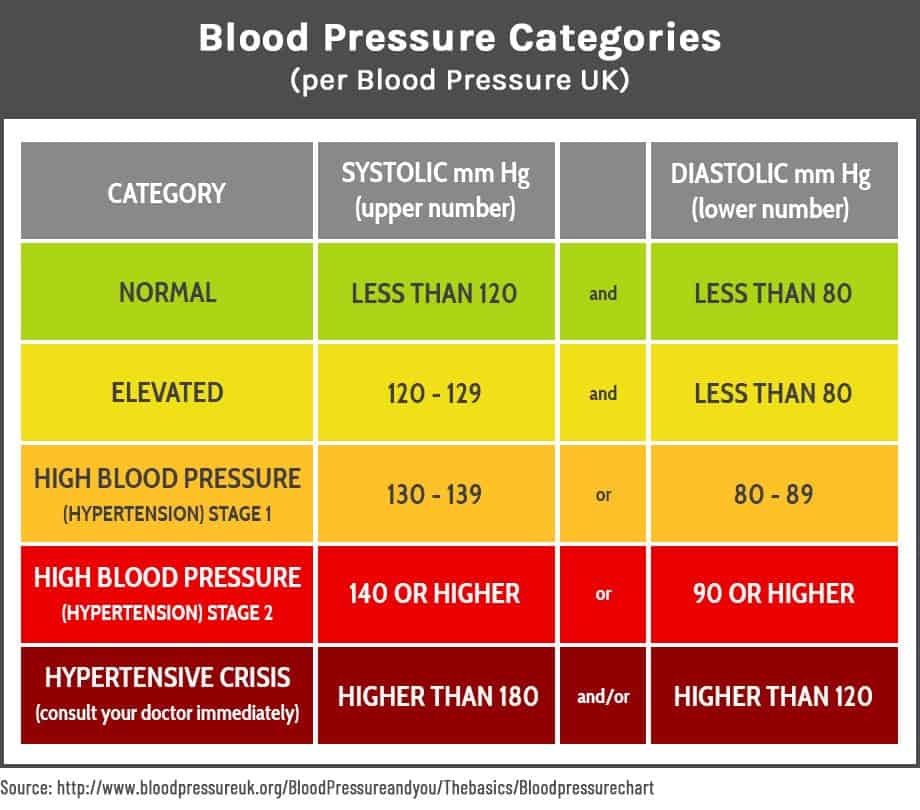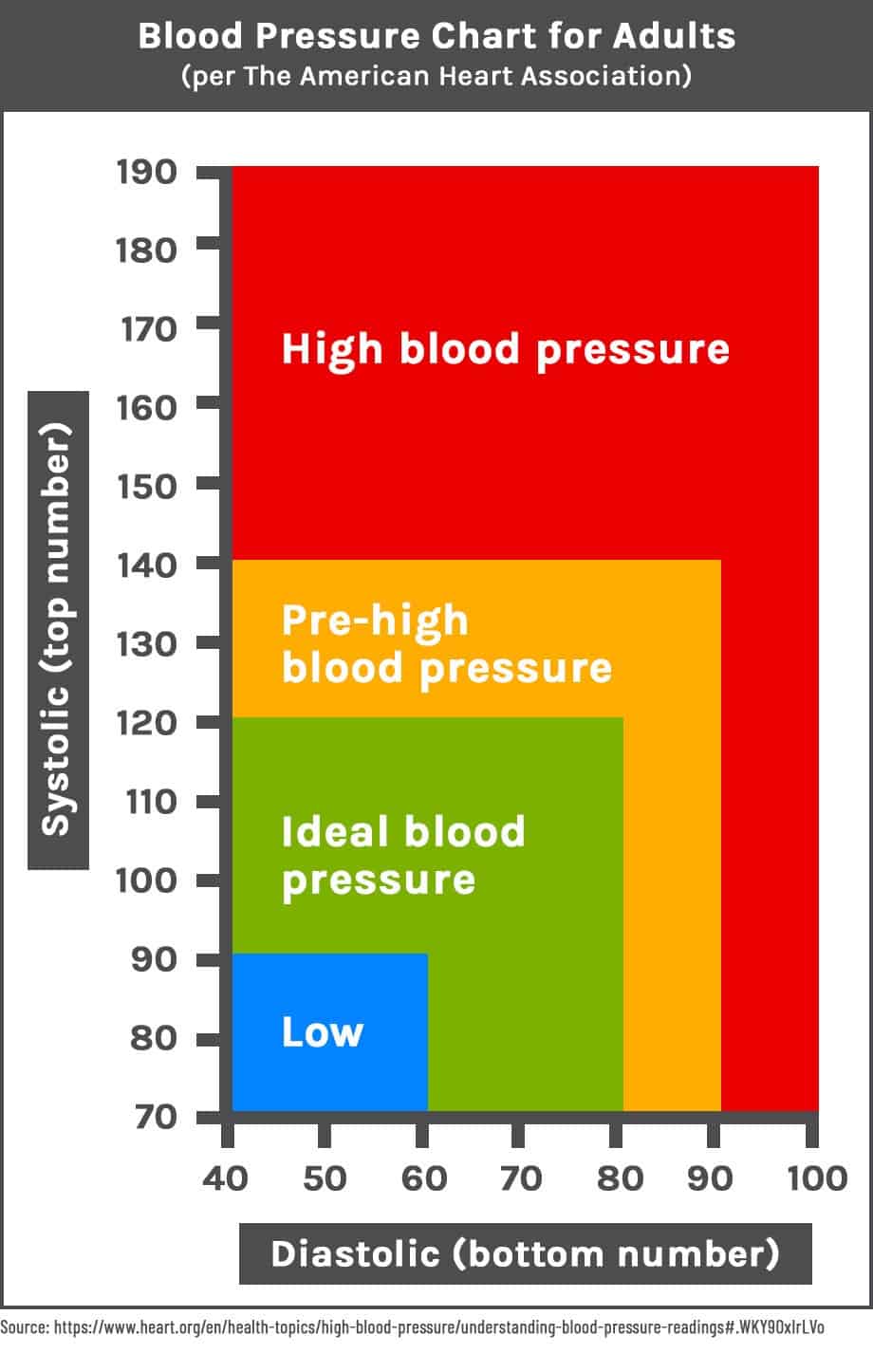How Healthy Are You? Take These 6 Simple DIY Tests to Find Out
Is “getting healthier” one of your goals? If the answer is yes, how will you know when you’ve achieved this worthy goal? One place to begin is with some simple do-it-yourself (DIY) home health testing, which can give you an idea where you currently stand in the health department.
You can then follow this up with an actual plan to nourish, exercise, and rest your body at proper intervals as part of a truly holistic approach to perpetual healthy living. (Under the guidance of a qualified healthcare practitioner, of course.)
The following six DIY tests can offer helpful insights on several areas of health. While these protocols certainly shouldn’t be looked at as substitutes for a proper medical diagnosis, they are valuable self-assessment tools that you (and your family) can use to get a gauge on your health.
Keep in mind that each of the following tests addresses a different area of bodily health, covering many of the most common illnesses that people today face.
And since all of them are simple, non-invasive, and essentially free (or very reasonably priced), there’s really no reason why you and your loved ones shouldn’t consider taking them – if for no other reason than to get to know your own body better.
Home Health Test #1 – The 30-Second Cracker Test for Carb Tolerance
Every time you eat, your body begins the digestive process in your mouth with your saliva, which contains special proteins and enzymes that are uniquely suited to break down different types of food. But everyone’s saliva composition is different, as some people’s bodies prefer more of one type of food versus another – which is where the 30-Second Cracker Test comes in handy.
Also known as the DNA Restart Cracker Self-Test, developed by geneticist Dr. Sharon Moalem, it works like this:  Grab a timer, a pen, and some paper. Take one unsalted saltine cracker (or a small piece of raw peeled potato if you’re gluten intolerant), break it in half, put it in your mouth and start chewing, starting the timer as you begin.
Grab a timer, a pen, and some paper. Take one unsalted saltine cracker (or a small piece of raw peeled potato if you’re gluten intolerant), break it in half, put it in your mouth and start chewing, starting the timer as you begin.
Keep chewing without swallowing until you notice a change in the taste of the cracker or potato, or until you reach 30 seconds. Do this three separate times and take an average of the results to see which Carbohydrate Consumption Category you fall into: Full, Moderate, or Restricted.
- If your average is between 0 and 14 seconds when you notice a taste change, you’re in the Full category, meaning your optimal diet (according to Dr. Moalem) is composed of about 50% carbohydrates, 20% protein, and 30% fat.
- If your average is between 15 and 30 seconds, you’re in the Moderate category, meaning your optimal diet is composed of 35% carbohydrates, 30% protein, and 35% fat.
- If your average is more than 30 seconds, then you fall in the Restricted category, meaning your optimal diet should contain only about 25% carbohydrates, 35% protein, and 40% fat [1].
Home Health Test #2 – Baking Soda Test for Stomach Acid
Once you’ve identified your saliva type, the next thing you’ll want to look at is your stomach acid. This is where the pre-digested food from your mouth gets broken down even further before entering your intestines – that is, if your stomach acid levels are healthy and normal.
Many people these days are lacking in stomach acid, which can lead to poor digestion, constipation, malnutrition, and even acid reflux – something that many people mistakenly think means that they have too much stomach acid.
A simple way to test your stomach acid levels at home is by consuming a 4-6 ounce glass of water mixed with 1/4 teaspoon of  baking soda first thing in the morning on an empty stomach.
baking soda first thing in the morning on an empty stomach.
Like with the 30-Second Cracker Test, it’s a good idea to do this three mornings in a row and take an average for the most accurate results.
Each time upon drinking the baking soda solution, time how long it takes for you to belch.
If your stomach is producing adequate acid levels, you should belch within 2-3 minutes, excluding smaller burps resulting from any air you might have swallowed while drinking the beverage. If it takes you more than three minutes to belch, you could have low stomach acid [2].
Home Health Test #3 – Self-Administered Gerocognitive Exam (SAGE) for Dementia
Cognitive decline is rapidly becoming a global pandemic, which is why it’s important to address any potential abnormalities as early as possible. One easy way to test your cognitive skills is by taking a Self-Administered Gerocognitive Exam, or SAGE, which takes no longer than about 10-15 minutes. The test is used to identify mild cognitive impairment (MCI) from any cause and early dementia.
Simply download the test from the Ohio State University website (https://wexnermedical.osu.edu/brain-spine-neuro/memory-disorders/sage), print it out, take the test, and bring it to your next doctor visit to find out your results [3]. There are instructions on the website to help physicians interpret the test results if they are unfamiliar with the test.
Home Health Test #4 – Pupillary Constriction Test for Adrenal Function
Hormones are another critical component of bodily health, including those produced by your adrenal glands. Because stress, poor diet, and various other factors can severely deplete adrenal function, testing your adrenal output is never a bad idea.
To get a sneak peak at your adrenal status before ordering a full-spectrum blood panel through a qualified health professional, you might consider taking a Pupillary Constriction Test.
This DIY test involves measuring how the pupils in your eyes contract and dilate in response to sudden exposure to bright light.  Simply sit in front of a mirror in a dimly-lit room for several minutes. Doing so should cause your pupils to dilate (get big). While watching in the mirror, shine a weak flashlight or penlight at your face from about a 45-degree angle. Your pupils will naturally contract and decrease in size.
Simply sit in front of a mirror in a dimly-lit room for several minutes. Doing so should cause your pupils to dilate (get big). While watching in the mirror, shine a weak flashlight or penlight at your face from about a 45-degree angle. Your pupils will naturally contract and decrease in size.
The time they’re able to stay constricted can tell a lot about what’s known as your hypothalamic-pituitary-adrenal (HPA) axis, a crucial stress-management system controlled by your adrenals.
If your pupils constrict and stay that way for 20 seconds or longer in response to the light, your HPA axis is likely functioning up to par. If your pupils fasciculate (twitch) for 5-20 seconds, this could be a sign of mild-to-moderate HPA axis dysfunction.
If your pupils get small and then immediately dilate (get big again), then the situation could be even more severe, which means it’s probably best to consult with a qualified physician [4].
Home Health Test #5 – Basal Body Temperature (BBT) Test for Thyroid Function
Another important hormone-producing gland is the thyroid, for which as many as 27 million Americans have undiagnosed abnormalities. One quick way for you to test yours at home is with a Basal Body Temperature (BBT) test.
All you need for this test is your armpit and a basal body thermometer which can be found at any pharmacy.
Popularized by Dr. Broda Barnes, MD, a BBT test is simple: take your underarm temperature while in a resting state, keeping in mind that normal underarm body temperature is between 97.8F (36.6C) to 98.2F (36.8C).
If yours is consistently under 97.4 degrees F, then chances are your thyroid is underactive. If your temperature is consistently over 99 degrees F (37.2C), then you may have an overactive thyroid [5].
Home Health Test #6 – Blood Pressure Test for Hypertension
Most people are familiar with having their blood pressure checked by their doctor. Machines that test blood pressure are also often available to use for free testing at pharmacies and you may choose to invest in an upper arm blood pressure monitor for at-home use.
The purpose of a blood pressure test is to see how well your heart and arteries are working to pump blood, oxygen, and other nutrients throughout your body. You’ll always see two numbers for blood pressure [6]:
- Systolic blood pressure (the first number) – indicates how much pressure your blood is exerting against your artery walls when the heart beats.
- Diastolic blood pressure (the second number) – indicates how much pressure your blood is exerting against your artery walls while the heart is resting between beats.
 What Is Optimal Blood Pressure for an Adult?
What Is Optimal Blood Pressure for an Adult?
You’ve likely heard that a “normal” blood pressure reading will be somewhere around 120/80 – the 120 representing the systolic number, and the 80 representing the diastolic number. However, what’s considered an “ideal” blood pressure is for the top number to be between 90 and 120 and the bottom number between 60 and 80 [7, 8].

It’s important not to panic over one “off” blood pressure reading. Wait a few minutes and take the test again. Taking a number of readings over time and tracking these in a notebook or smartphone app will give you and your doctor far more information about the state of your health than a single reading can.
Blood pressure is an important indicator of health. If you’re consistently well-over 120/80, this could be a sign of hypertension and you should be checked by a physician. Extremely low blood pressure (below 90/60) isn’t a good thing either, and also needs to be checked out [9].
Getting a handle on your blood pressure is critical. Research shows that after age 40, for every increase in blood pressure of 20 mmHg systolic or 10 mmHg diastolic there is a doubling of mortality from both Ischemic heart disease (IHD) and stroke. The good news is that a healthy diet and lifestyle can greatly improve blood pressure.
If you’re not getting all the nutrients and antioxidants you need from food, your best source is whole food vitamins. Organixx Multi-Vita-Maxx contains 21 uniquely fermented vitamins and enzyme-activated minerals that are more “bioavailable” and easily absorbed by your body than the synthetic compounds found in most supplements.



 What Is Optimal Blood Pressure for an Adult?
What Is Optimal Blood Pressure for an Adult?
These are interesting to know and something you can really do easily. It's very important to keep an eye on our health so let's not neglect it.
Hi Jhoie, we're happy to know that you feel that way towards health and wellness. This topic might be intimidating to others (understandably so), and we appreciate it when wonderful readers like you use our resources in education themselves to becoming one step healthier!
Thank you and have a lovely weekend ahead!
Thank you so much for these free health tests. I really appreciate
receiving your emails, I learn so much. Thank you again.
Hi, I dont quite understand the 30 sec cracker test results. So which of the three (full, moderate, or restricted) is better to have? Which category shows better health?
Hi Pat, thank you for your question.
The 30-Second Cracker Test will tell you how much carbs you should be eating for your DNA. There is no ranking in the results, but it will give you an idea if you are consuming more food than your DNA thrives on. The category that you fall under will let you compare your optimal diet composition (%of carbohydrate, protein, and fat) compared to your current diet to determine how healthy are you.
We would love to invite you to take a look at the article that we used as the source for this topic:
https://www.mindbodygreen.com/0-26295/this-30second-cracker-test-will-tell-you-how-many-carbs-you-should-be-eating-for-your-dna.html.
We hope this helped and we wish you a great weekend!
Thank you for the clarification. The article did help as.well.
Good timing for me personally with these tests. Thyroid issues (denied by my doctor) have caused my pulse to drop to 35 (June) and BP raise to 220/110 (Dec), with ambulances called out for me twice by my employers. After 6 wks off work I am still awaiting a 24 hr BP monitor and 24 hr EKG through NHS. Self-testing BP and temp throughout the day, usually around 36.1degrees but have had one reading at 37 in the 6 wk period. My pulse changes from 50s to 90s and I am struggling to find out why. They stopped my hypertension meds in June, but put me on different ones in Dec and told me if I have prolonged low pulse I should call the helpline or attend A&E. This month the doctor ordered me to restart taking my Metformin - which is an endocrine disruptor, possibly a decade of taking that has led to the thyroid problem. Many health sites state that the thyroid has to be dealt with first in order for body functions to normalise and weight and blood glucose and hypertension to be controlled. I am going round in never ending circles trying to tackle all these issues without the support of my doctor. So these snippets of info are extremely useful and supportive whilst I feel abandoned by professional help if I don't toe their line.
Hi Linda.... my mother (who was diabetic) had blood pressure issues that jumped around too high and sometimes too low. Her doctor couldn't get it under control so they brought in a blood pressure specialist who pinpointed it to her kidneys. Kidneys have a big play in regulating blood pressure! Her kidneys was the root cause of her problem. I do not normally reply to comments but I wanted to share this with you in case it could help. I wish you better health to come!
Thank you so much for sharing your story with us, Linda.
We are very sorry about the very challenging health experiences you had. We are glad to know that our articles has been informative for you in your wellness journey.
We hope that everything will for out for you and your health. Wishing you the best!
Always learning from you! Organixx is a excellent company that does look out for you. If not for you I would not be here. I definitely stay away from MD’s
for any health problems and that goes for my dogs as well. Thank you for all you do! Much appreciated.
Hi Nora, thank you so much for your warm feedback!
We are pleased to know that you find our articles informative. If you have any article suggestions, please let us know!
Thank you as well for your support and trust in Organixx. We would love to hear more of your story. May we ask which among our products are you enjoying so far?
Wishing you a great weekend!